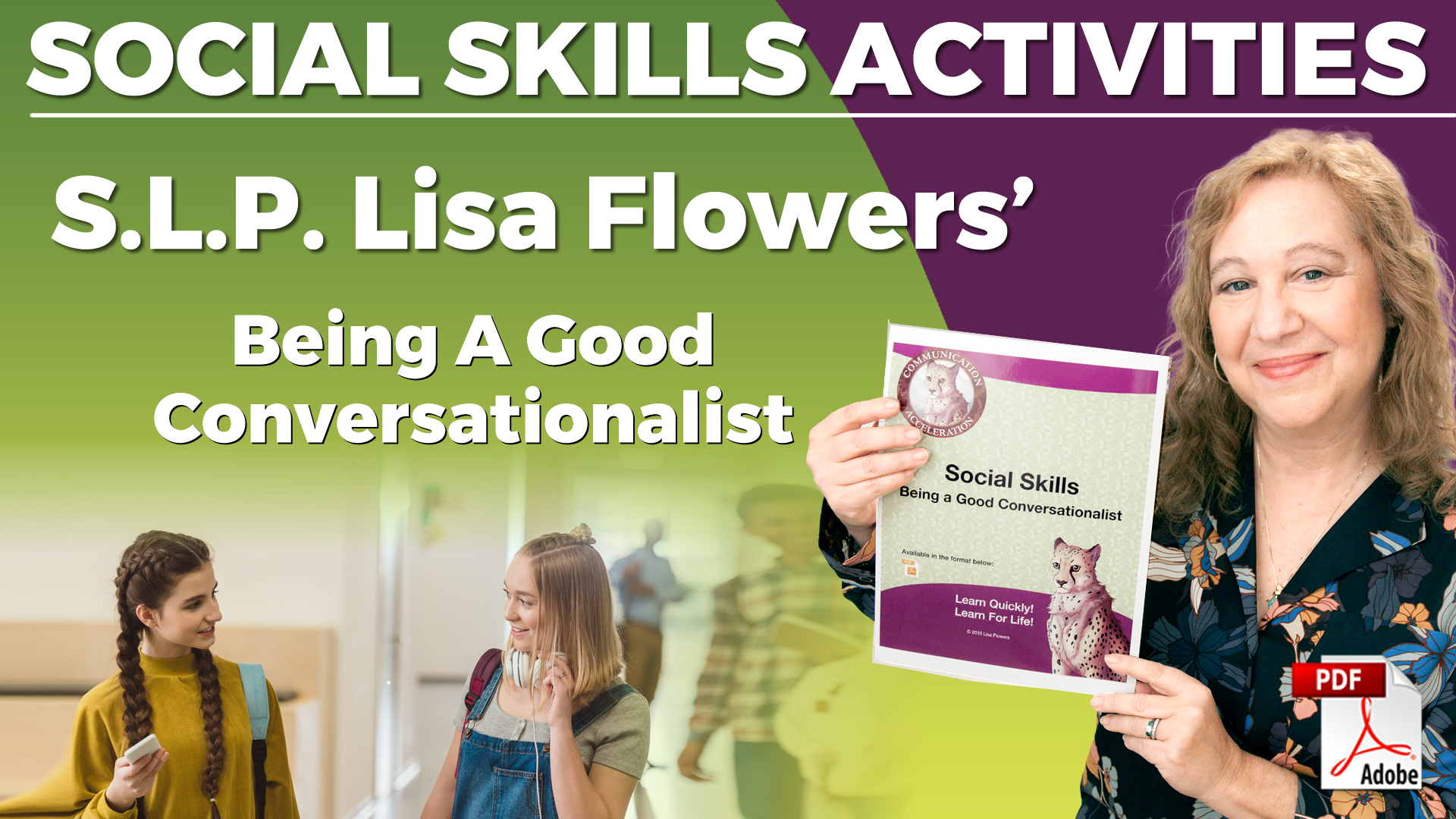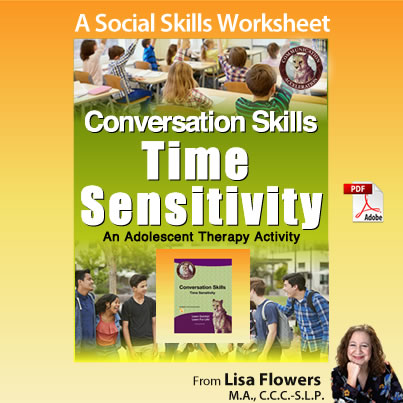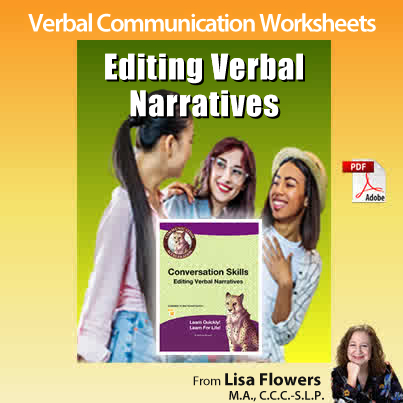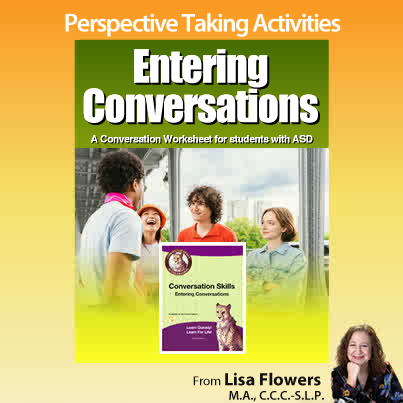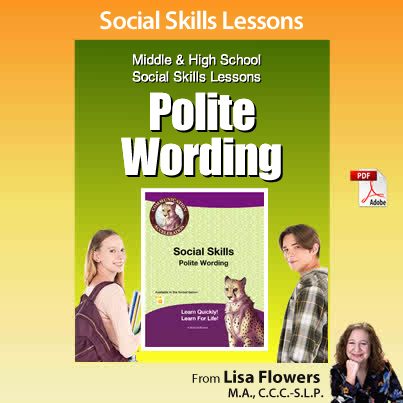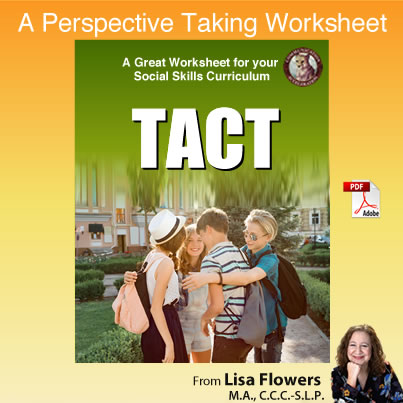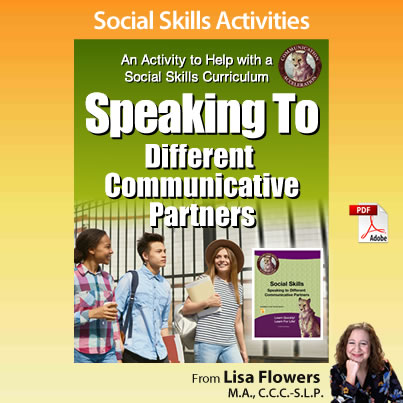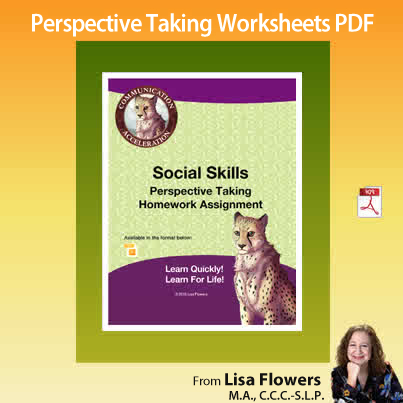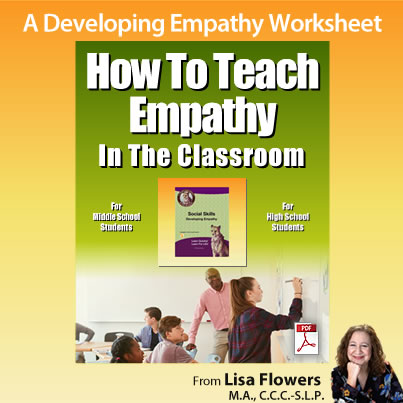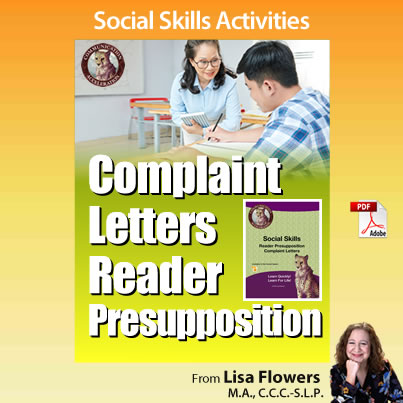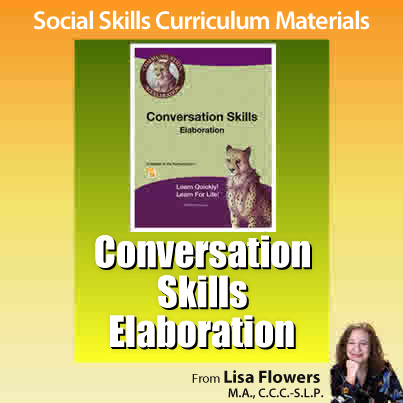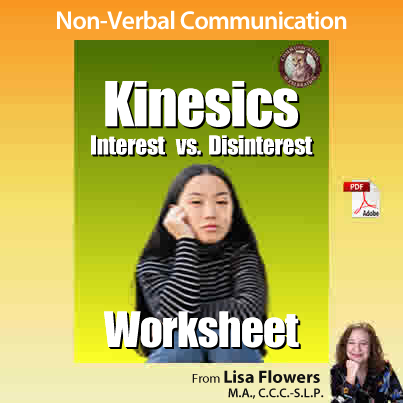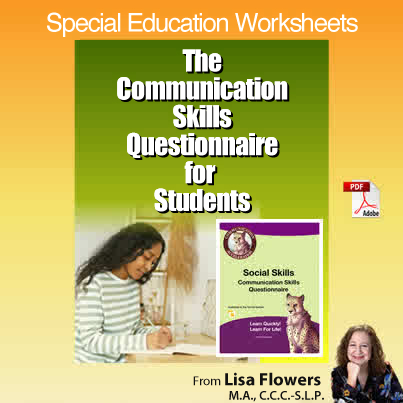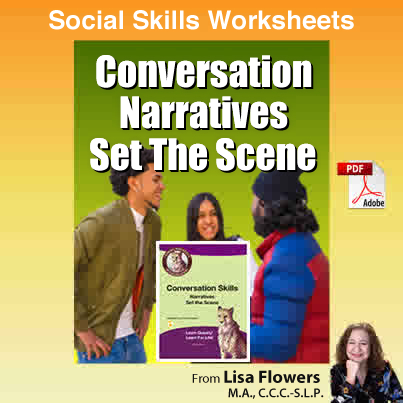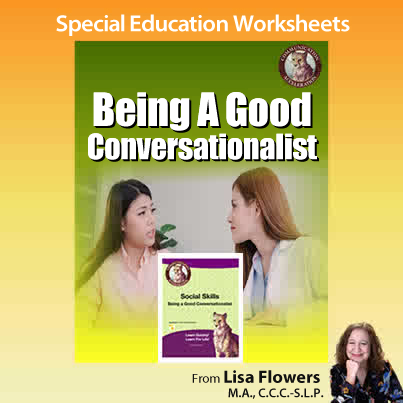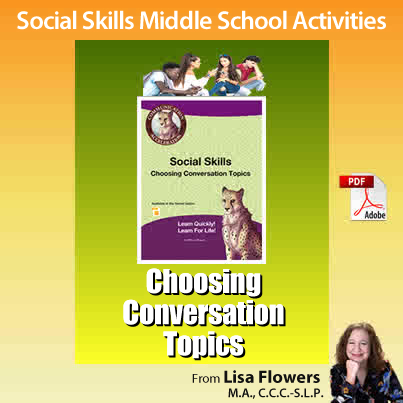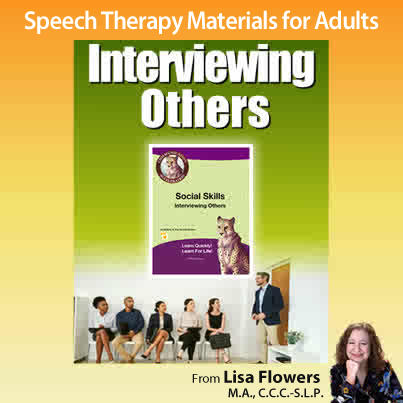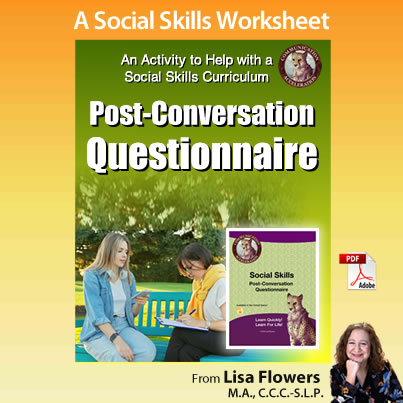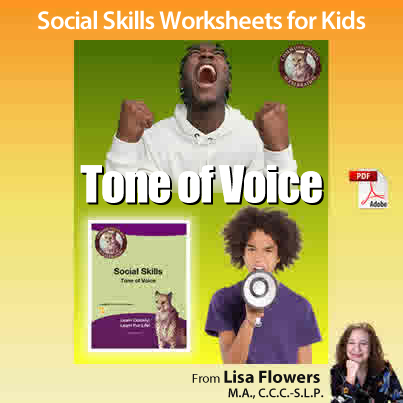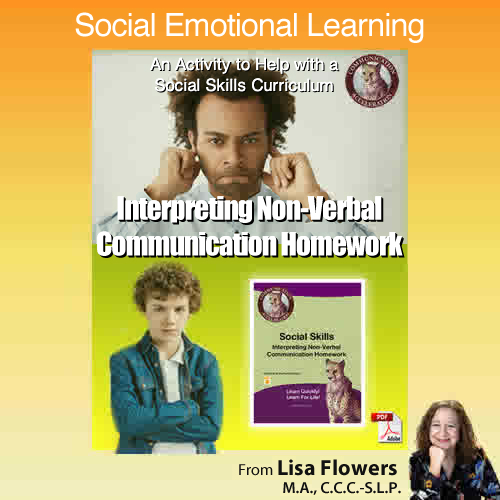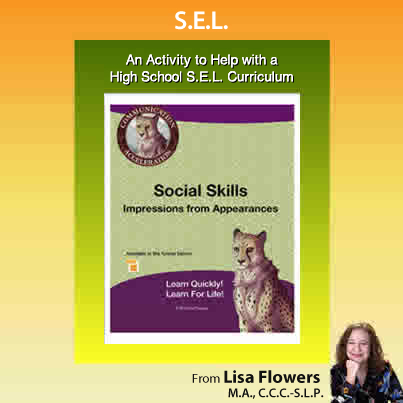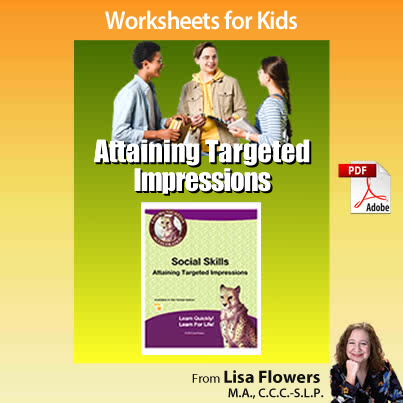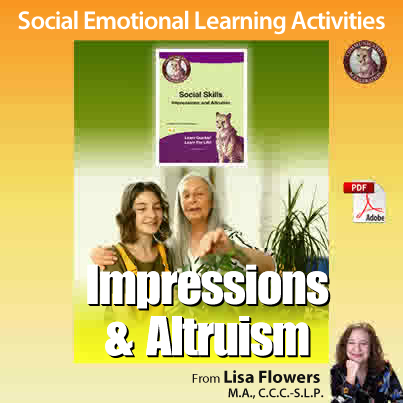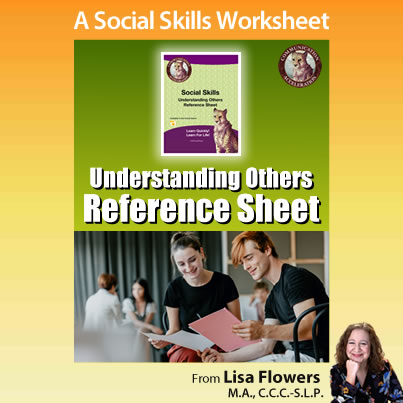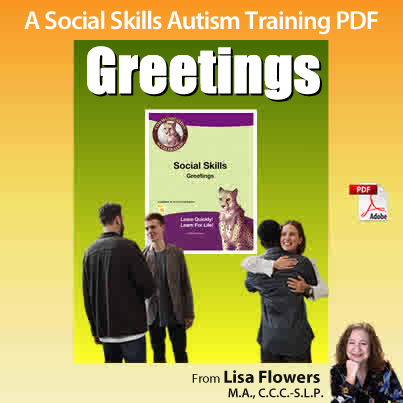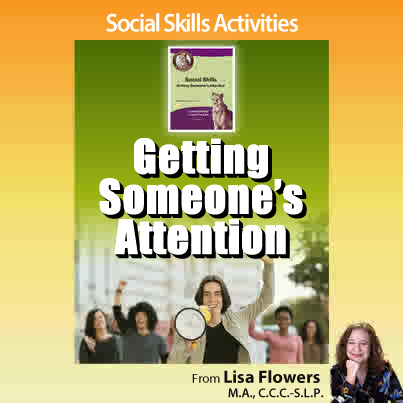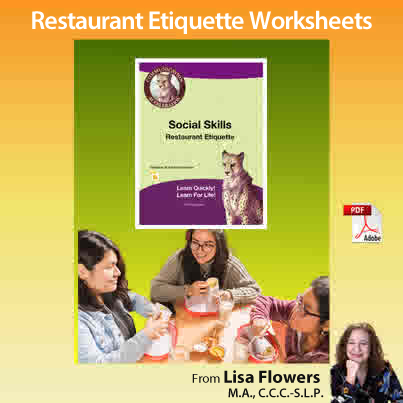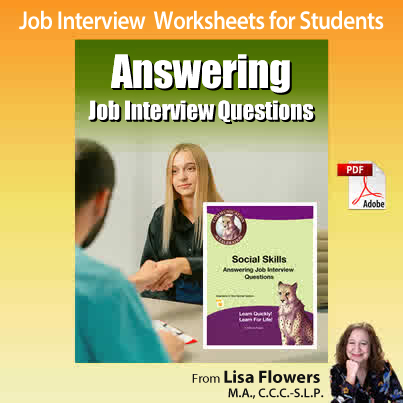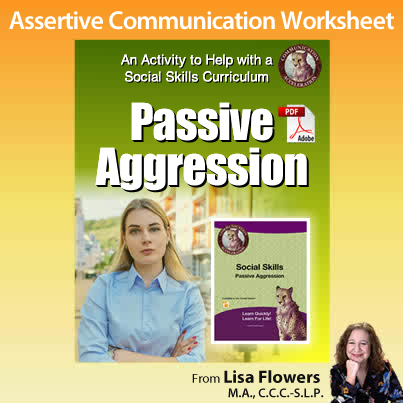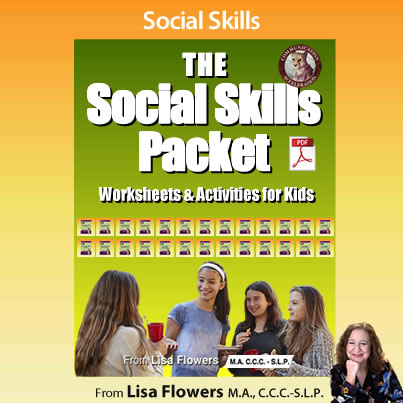Social Skills - Being a Good Conversationalist
Social Skills / Being a Good Conversationalist
Being a Good Conversationalist
Watch the video to learn more
Click here for video transcription and ADA compliant audio for the video above
Being a Good Conversationalist
So many of my students strive to be successful at conversing. This handout goes over many of the attributes that make someone a good conversationalist, including the turn-taking percentage rule, spatial inclusion, conversation components, and what to avoid.
Being a Good Conversationalist
See the audio transcription below:
Welcome to my Being a Good Conversationalist handout. Check out this excerpt from the training video I did for the New York City Department of Education. Being a Good Conversationalist, this activity covers the importance of listening and asking questions, spatial inclusion, and conversation content. I actually used it today with a couple of my students and after we reviewed the components of being a good conversationalist, we practiced conversations using the sheet and we would target only one or two of the components at a time. Thanks for reviewing my description of this handout. If you like what you've seen here, please click and subscribe to my channel. I'm not exactly sure what that means, but my web guy told me it's a thing!
Get Great Social Skills Worksheets to add to your Social Emotional Learning Curriculum!
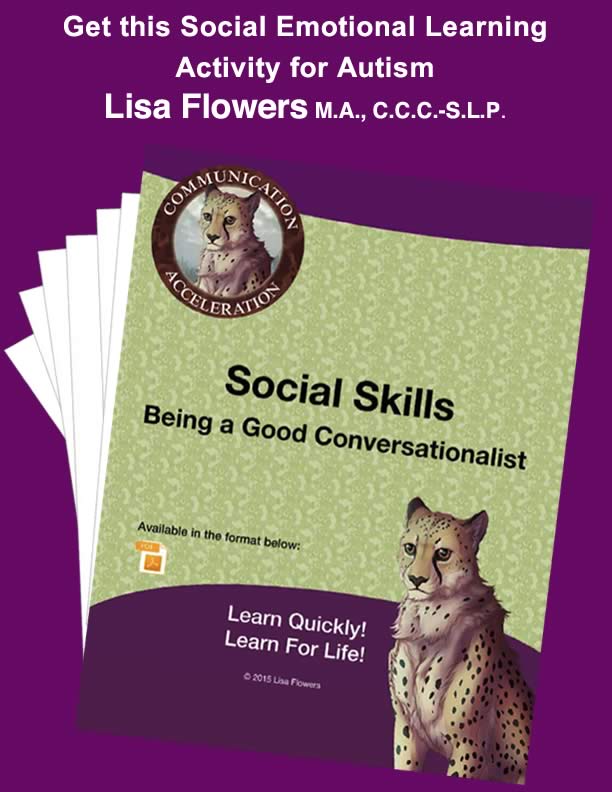
Being a Good Conversationalist
This activity teaches students unwritten rules of conversation, such as balancing comments and questions, selecting interesting conversational topics, and spatial inclusion. This resource can be employed as a checklist assessing organic conversation practice. (Includes therapeutic notes so educators, speech-language pathologists, and therapists can lead discussions prior to practice.)
We all know neurotypical coworkers, friends, neighbors, and relatives that frequently interrupt, monopolize conversations, or tell loquacious stories with an unnecessary level of detail. There's rarely a comfortable manner by which we can address these behaviors with the people in our lives. This activity helps our students work on conversation skills and social niceties by identifying relevant aspects and practicing in a variety of ways.
Social Skills Worksheets from the Package
These social skills worksheets and activities for individuals with Autism and Social Pragmatic Communication Disorders target a variety of social skills, including the development of empathy, perspective taking, kinesics, listener/reader presupposition, and conversational skills.
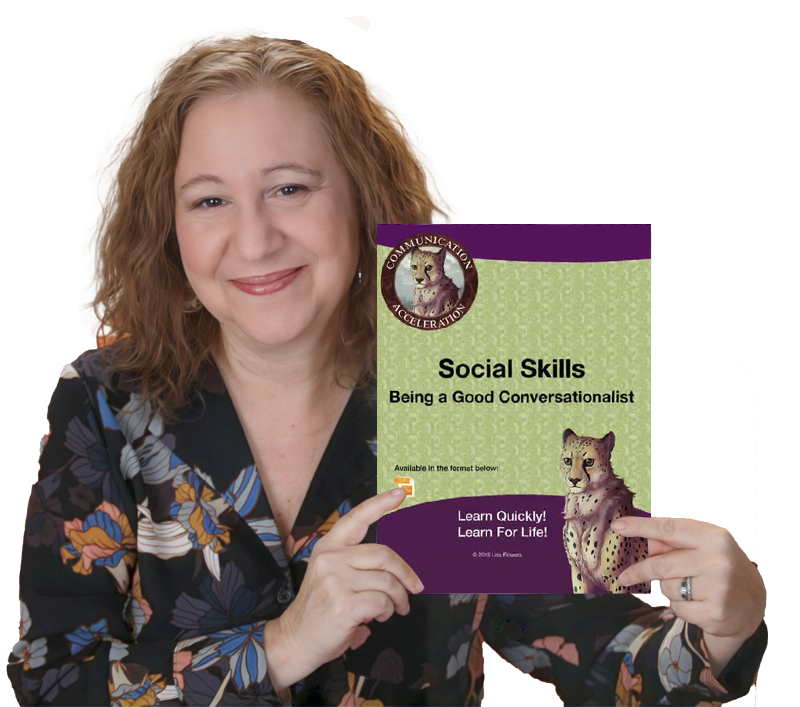

Search Another Way
Get Social Skills
Packet
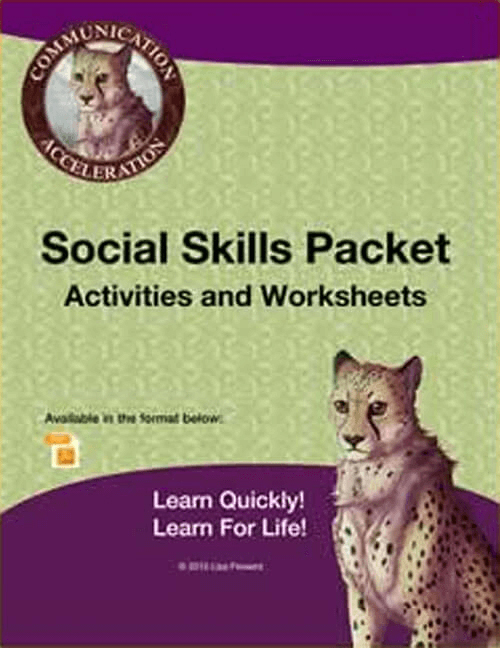
A collection of 28 social skills worksheets and activities that cover conversation skills, kinesics, perspective taking, development of empathy, and real-world communication.
Get 52 Lessons & Activities
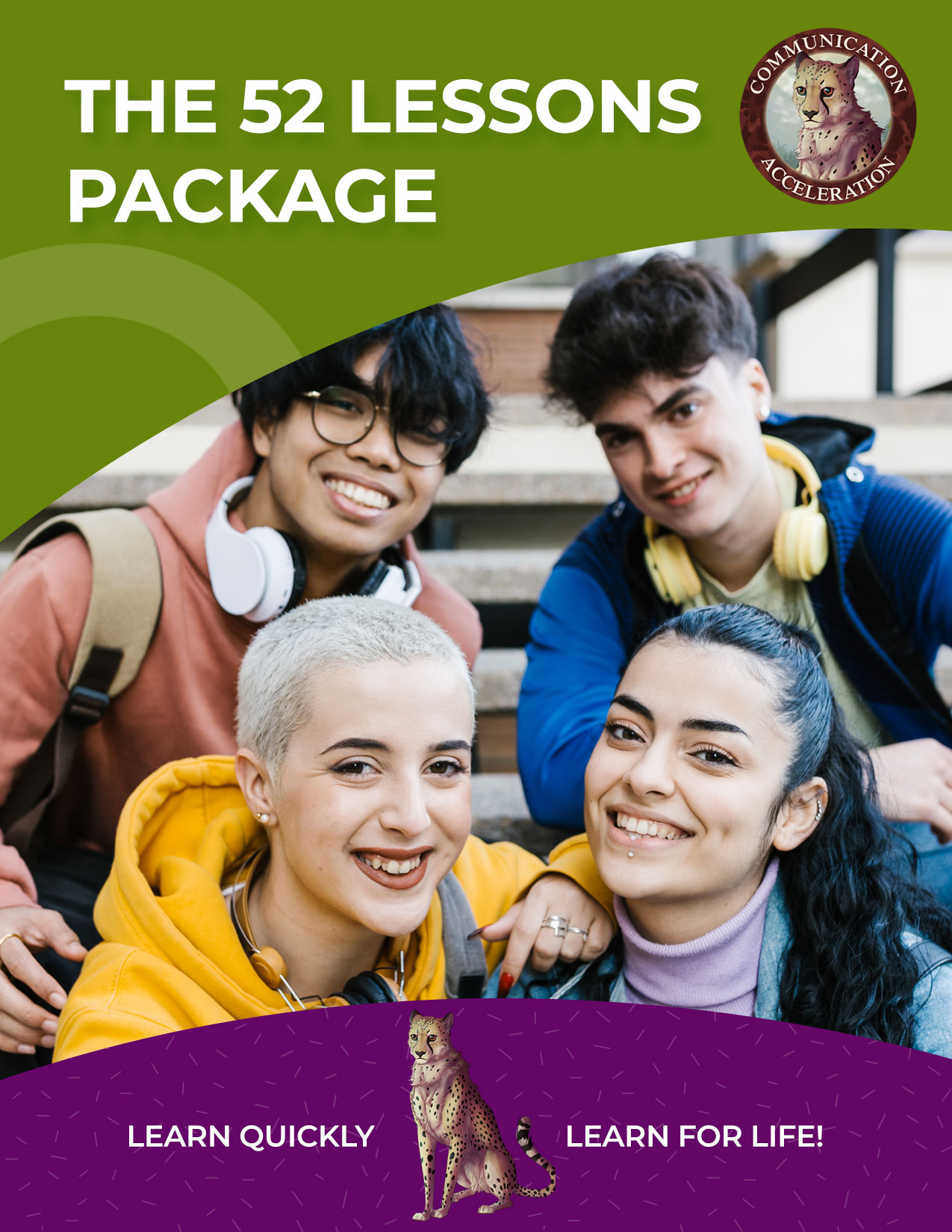
A collection of 52 language and communication worksheets and activities that cover a plethora of reading comprehension, writing, grammar, and social communication skills.
